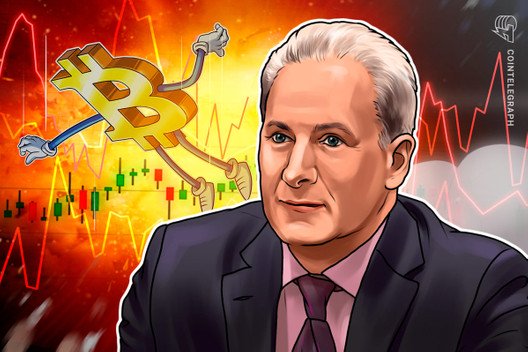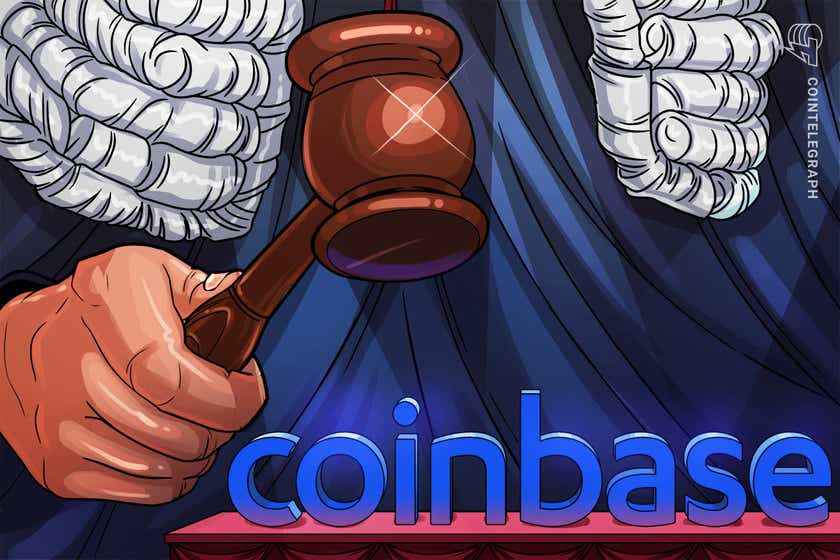Crypto Pepes: What does the frog meme?
When BarnBridge founder Tyler Ward decided to change his profile pic a few weeks ago, he inadvertently created a Pepe the Frog NFT meme craze embraced by celebrities and the DeFi community that was on track to reap more than $60 million in sales on the OpenSea auction platform.
Then the wheels fell off rather spectacularly. Magazine chats with Ward on Monday, Feb. 22, after the first 20 of 1,069 Non-Fungible Pepes were sold at an average price of $62,671 each, and he can’t quite believe it.
“We sold like $1.3M worth of Pepes, like 20 of them,” he says. “One of them went for $200,000!”
“All these celebrities have gotten involved — like Diplo, just signed up to be a part of the movement. Everyone in crypto is a part of it.”
“All the Defi protocol founders, even Vitalik’s dad, got behind it. Dillon Francis, he’s a pretty famous musician in the US, he’s actually been going pretty hard on all of this stuff. I wasn’t expecting it. I mean, it’s truly blown up over the weekend.”
30 min left on a bunch of these @NonFungiblePepe GET IN THERE https://t.co/uQcWJhv355 pic.twitter.com/Tthj8rM5Mp
— dillonfrancis (@DillonFrancis) February 20, 2021
Origins lost in the mists of time
Way back on Feb. 12, Ward asked his in-house designer to knock up an image of sad-faced frog Pepe in the low-res style of CryptoPunks for use as his Twitter profile pic. Handed a few different examples, he sent them off to friends including Synthetix founder Kain Warwick and illustrator and art collector Tim Pang.
“Everybody’s just like ‘You gotta do this, this is really fun,’” he says. Of course, while Pepe is a beloved crypto meme, it’s also widely associated by “normies” with racism and sexism and the alt-right edgelords from the badlands of 4chan. This pisses Ward off.

“I mean we’re all pretty progressive. The Ethereum community is not alt right, but we very much have grown a fondness for this frog,” he says, adding: “The frog’s background was never alt right. We were using it in crypto way before the alt right was.”
In its OpenSea listing, the project said it was explicitly about trying to help rehabilitate the melancholy frog’s Nazi image:
“We are here to reclaim the humor of the meme through our shared love for NFTs and having some fun. If our Pepes are used for racism, bigotry, or anything terrible… we will shame you and Kek will have vengeance on your soul.”
Ward says he was inspired by Tyler Winklevoss’ idea that Bitcoin is actually a social network, inspiring millions to spread the gospel of Bitcoin by enabling them to share in its value.
“I thought: what is the best way you can get everybody to band around the idea that Pepe is not racist? If we mint a bunch of them and give them some degree of value, then people will want them for more than just a profile picture. It creates a digital scarcity and I think that as a result of that they’ll care about what they own and they’ll care about trying to clean up the image of what it represents. Let’s make the movement about taking Pepe back.”
Despite having zero marketing budget and no time to even set up a website, the NFT Pepes meme took off across social media, with 2,000 members pouring into the hastily thrown-together Discord channel and almost 5,000 following the new Twitter account.
“I started this as a joke. I was trying to change my Twitter profile picture. But that anti racism message really resonated because I’m not the only person in crypto apparently, who thought Pepe was cool, and thought it was messed up that we couldn’t use them because of racist people.”

There was just one slight problem: Ward was not aware that the meme frog even had a creator, or that artist Matt Furies’ life has been all but ruined by alt-right edgelords appropriating his frog, as outlined in the excellent new documentary Feels Good Man.
This became clear when Galaxy Digital’s Mike Novogratz tweeted about the insane $210,000 (110 ETH) price that one of the NFPs (PepeIsLyfe #38) went for, and the documentary makers pointed out that the “knock-off” Pepe had brought in almost as much as the film’s entire budget.
In case there was any doubt…not an official sanctioned Pepe.
It’s a rather absurd moment in time that a knock off jpg can sell for the cost of making an entire documentary about the actual meme. https://t.co/rUFFDweN3D
— Feels Good Man – the doco about that frog meme (@feelsgoodmandoc) February 22, 2021
The Non-Fungible Pepe Twitter account quickly posted it was halting all sales while the team frantically tried to get in touch with Furie to seek his blessing. That blessing was not forthcoming.
“I asked him if he wanted to be involved and he said ‘no I don’t and I also don’t want you using Pepe,’” Ward explains via WhatsApp earlier this week. “So instead of seeing how I could maximize profit and be a jerk, I refunded sales to people who felt slighted and I did what Matt asked me to do.” Within a few days, they’d refunded 80% of the $1.8 million worth of WETH taken in the auctions.
Ward believes that legally speaking, the project was on solid ground. “I don’t think Matt’s legal position is very sound but it came down to me respecting him as an artist and the hell Pepe has put him through and I don’t want to be a part of either ripping someone off even if it’s 2% their work what made this successful or 200%.”
“At the end of the day, the more I learned since starting this, that frog has made his life a living hell and had I known that starting this I wouldn’t have done it,” he admits. The project has since been transformed into Non-Fungible Universe, with 69 original characters and its own currency called KEK.

Pepe’s past
Pepe the Frog began life innocently enough in Furies’ 2005 comic book series “Boy’s Club” as a laid back frog with the catchphrase “feels good man.” Sure, there was psychedelia and drugs and stuff, but Pepe was a good guy, and Furie would post the comics to his MySpace page.
Memes featuring Pepe then became widespread on MySpace, Tumblr and 4chan. Over the next nine years, the frog’s popularity grew to the point where influencers were doing Pepe makeup videos and mainstream pop stars like Katy Perry and Nicky Minaj were tweeting out the meme.
According to The Daily Beast, in 2015, the anon army from one of 4chan’s more out there forums, /R9k/, decided to reclaim Pepe from the normies by pushing them away with a barrage of edgy Pepe memes featuring “ironic” racist, homophobic and antisemitic stuff. A member of the board tweeting as “JaredTSwift” told the news outlet: “We basically mixed Pepe in with Nazi propaganda, etc. We built that association.”
The joke became less and less ironic as Donald Trump campaigned for the presidency and Pepe became the house mascot of MAGA and white nationalists. Remember that whole “punch a nazi” meme? That began when alt-right figurehead Richard Spencer was punched in the face on camera while trying to explain the meaning of his Pepe badge. That same year, the Anti-Defamation League listed Pepe as a hate symbol, even though it explicitly pointed out:
“The majority of uses of Pepe the Frog have been, and continue to be, non-bigoted.”
The ADL launched a #savepepe campaign with creator Matt Furie, who said: “As the creator of Pepe, I condemn the illegal and repulsive appropriations of the character by racist and fringe groups. The true nature of Pepe, as featured in my comic book, ‘Boys Club,’ celebrates peace, togetherness and fun. I aim to reclaim the rascally frog from the forces of hate.”

Rare Pepes were the original NFTs
4chan also had a hand in how Rare Pepes, essentially the original NFTs, came about. They trace their origins to a 2015 inside joke about an autistic kid who would exchange Good Boy Points for chicken tendies. Then people started exchanging Rare Pepes for tendies, which led to the idea that Rare Pepes had value.
This inspired some people to create unique tokens on the Counterparty platform to represent ownership of Rare Pepe trading cards, which were traded for PepeCash. Interestingly, rules were brought in to ensure content was original and didn’t relate to alt-right, white supremacist or pro-Donald Trump content.
Pepe trading enthusiast Django Bates told the Daily Dot at the time: “Most of the community don’t think Pepe is an alt-right thing. Some (like me) think that we should Make Pepe Great Again and free him of that connotation.” He adds further: “Also, you have to be aware that Pepe as a symbol of hate and racism by alt-rights is a merely North American thing. The rest of the world does not see Pepe in that context.”

Rare Pepe Wallet was set up as a platform to trade the tokens, with the phenomenon culminating in a live auction in 2018 that saw a Homer Pepe sell for around $38,500 in Pepe Cash. In an interesting postscript, earlier this week on March 1, owner Peter Lamborghini resold it for 205 ETH, or almost $300,000.
In art news: The reputed “rarest pepe” sold for 205 ETH (approximately $295k USD) according to its owner. https://t.co/pQOvTOw6ZI
— Travis View (@travis_view) March 1, 2021
Chainlink frog army
The association of Chainlink, the ninth-largest cryptocurrency project, with Pepe is thanks to 4chan’s slightly less awful /Biz/ forum, which features a deep vein of dank meme-powered crypto shilling. It was here that a Q-style prophet/insider named Assblaster dropped hints and clues about LINK in the early days, claiming both that he was under an NDA and also dropping large amounts of free alpha about the project into the forum.
“When Chainlink started doing well it just became this cultish prophecy of 4chan, and 4chan really likes Pepe the frog so it was kind of this merger,” says Ward. “A lot of people that posted about Chainlink would post with Pepe the Frog and they kind of became intertwined.”
LINK Marine Albert Nazarov, who spends around four hours per day reading and tweeting about Chainlink, discovered the currency via 4chan.
“Things like racism and sexism etc are prevalent,” he concedes. “But ironically, 4chan is basically a crucible of raw thoughts, the best and balanced make it to the top. It’s almost anything goes there, and it trains the brain to decipher good info from bad stuff.”

Nazarov says that for a while there, Pepe was “bad for our optics,” so the community tried to distance itself by dressing up as “LINK gentlemen in suits etc.” However, Pepe just cuts through better.
“The main power of Pepe is relatability,” he says, pointing out that the character is humanoid enough to express emotion but cartoonish and abstract enough to make great memes. And great memes helped supercharge Chainlink.
“It no longer bears alt right connotations in my opinion,” he concludes, while pointing out further:
“Oracles and decentralised middleware is not sexy and it’s quite laborious to read about. Whilst a Pepe meme spreads the same message to a wider audience. It’s basically the distillation of knowledge into a relatable form. A five-year-old could understand LINK through a meme for example.”

Synthetix founder Kain Warwick — currently sporting a Non-Fungible Pepe profile pic — says he doesn’t detect any trace of alt-right thought among the frog army.
“They’re all Chainlink memes, they’re very Chainlink focused,” he says. “And I don’t think that there’s a particular sort of alt right bent to the Chainlink community. I just think that they’ve taken that meme as a funny meme.”
But he adds there had been a long debate in the Synthetix Discord about the use of Pepe on social media — about whether the crypto community has been able to reclaim the frog. And they’d come to the conclusion it has.
“I think there is a bit of co-option of those images and reusing them for crypto memes and personally I’m a fan of that. The Pepe meme was co-opted by the alt right so for it to be re co-opted by some other group and used in different contexts I think is a powerful way of undermining those sorts of things.”









